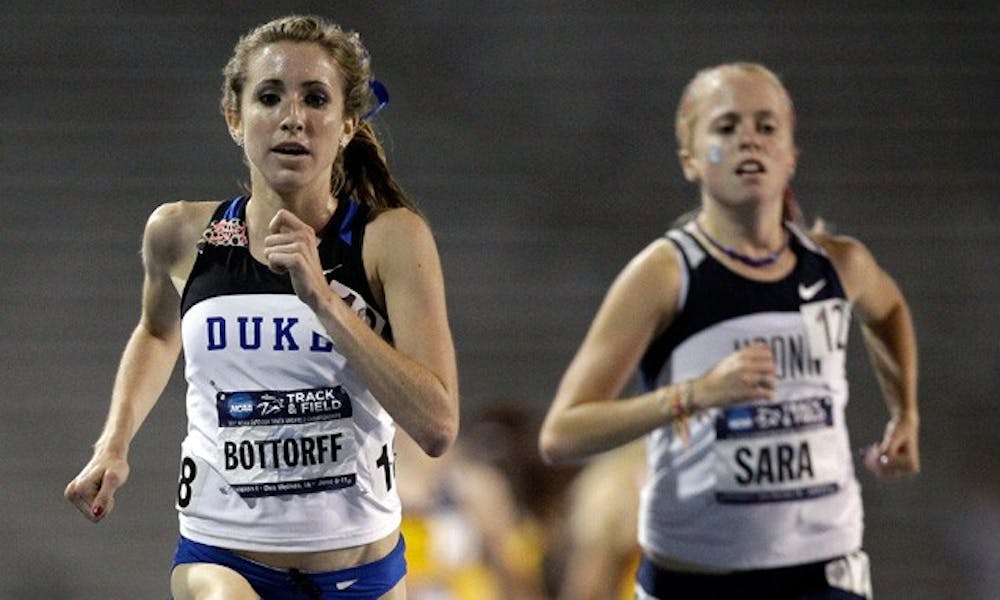When Juliet Bottorff first stepped on the track at the NCAA championships, winning was not on her mind. The sophomore had set her sights on finishing in the top eight, thus earning the title of All-American, in the 10k race.
But with one lap remaining, all that changed.
The first 9,600 meters had been a slow, tactical race, as runners tried to withstand the thick Des Moines, Iowa heat. Even with an 8:45 p.m. start, the conditions were nearly unbearable, and Iowa State’s Betsy Saina, the 2010 NCAA runner up, was forced to withdraw after collapsing on the track.
Bottorff simply survived, step after step, lap after lap, knowing that with each passing second she grew incrementally closer to achieving her goal of a top-eight finish. As she reached the final 400 meters, though, the sophomore realized she still had the energy to make a final sprint. She strode out to the front of the pack, daring her competitors to keep pace—and soon realized they couldn’t.
“I definitely did not think the win was going to happen,” Bottorff said. “With two laps to go, the idea started creeping into my head, but not until I started to make my move and realized that no one was coming with me did I realize I had it.”
Even if Bottorff’s competitors had been able to make a push to the finish, it seems unlikely they could have matched the sophomore’s blazing 67.4-second final lap, leaving her with a total time of 34:25.86.
“I knew I felt really good,” Bottorff said. “But for all I knew other people were feeling great too…you just never really know until you cross the line.”
Bottorff is Duke’s first-ever NCAA women’s outdoor champion, though Shannon Rowbury ran the fastest mile at the 2006 NCAA indoor championships.
Bottorff’s win is made more impressive since the sophomore was seeded in fifth place heading into the race and took the win through a strategy that, according to her, was less than ideal.
“I actually don’t prefer [slow races that come down to a final sprint],” Bottorff said. “I’m more of a fan of honest races that are faster. You can’t say this was an honest race. No one wanted to take the lead. Everyone wanted the others to do the work.”
Preference notwithstanding, this isn’t the first time Bottorff has shown an ability to run a smart race, patiently staying with the lead pack and then taking the victory at the end. Earlier this season she used the same strategy during the ECAC 3k race, patiently staying near the leaders before taking the victory at the end. According to Bottorff, that race, like the others during the season, was simply preparation for NCAA’s and a step towards becoming a smarter racer.
Despite finally reaching the culmination of all that training and hard work, the champion said that the realization of what it means has yet to sink in, and that what she feels now is mainly gratitude for what the Duke program has provided.
Bottorff pointed out that the Duke coaches have helped shape her success, stating that the support system she found at the University over the past two years played a key role in helping her develop into the champion she is today.
Regardless of all the success, however, Bottorff is anything but complacent. While most runners would view an NCAA title as the peak of achievement, Bottorf is already looking ahead.
“I don’t at all feel like now I’ve done everything,” Bottorff said. “There are plenty of goals ahead. On the one hand I’ve gained confidence, but on the other hand there’s still a lot that I want to prove to myself.”
Get The Chronicle straight to your inbox
Signup for our weekly newsletter. Cancel at any time.

